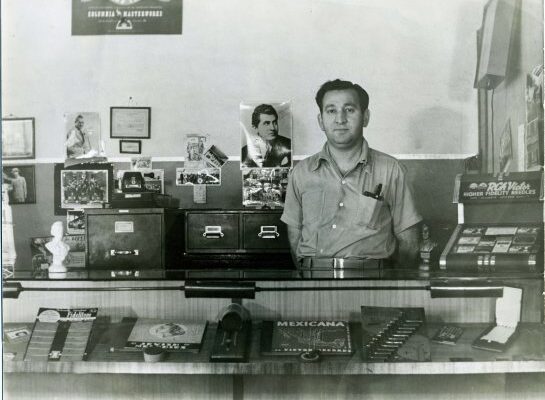
Tony Villanueva on: Brooklyn Avenue
Tony Villanueva on: The Brooklyn Avenue Melting Pot

My father, Bill Phillips, operated Phillips Music Company on Brooklyn Ave. from 1935-1992. USC historian, George Sanchez, described the store as follows:
“But as we did more interviews, we kept hearing different stories from other people about Bill Phillips, who owned this music store on Brooklyn Avenue.”
We started to interview Latino musicians who came up through Roosevelt High School. We realized that Bill Phillips had a little room in the back, and he’d listen to people coming in first looking at albums, trying to see if they were real musicians. He himself had been a jazz musician, playing Hollywood locales and also on Central Avenue, the African American community in Los Angeles. We realized that he would pick out the most promising young Latino musicians to play in his store, because they didn’t have larger spots to practice in their own homes. If he thought they were good, he would put them in contact with some of his own people in Hollywood or some of the people going through on Central Avenue. I’m talking about people who would go on to careers with Count Basie or with Tito Puente.” (Sanchez, George. 2007. “Regionalism: The Significance of Place in American Jewish Life.” American Jewish History 93(2): 113–127.)
Josh Kun, director of the Popular Music Project at the USC Annenberg’s Norman Lear Center, similarly emphasizes the multi-cultural heterogeneity of Boyle Heights with my dad’s store at the center: “From the 1930s to the 1980s, The Phillips Music Company—run by the late Bill Phillips—was more than a music store or a record shop; it was a space for democracy where diverse urban communities gathered to explore cultural traditions and invent contemporary musical languages. As a home to Mexican-Americans, Jewish-Americans, and Asian-Americans, Boyle Heights..has historically been one of the great models of the mash-up that is Los Angeles identity…”